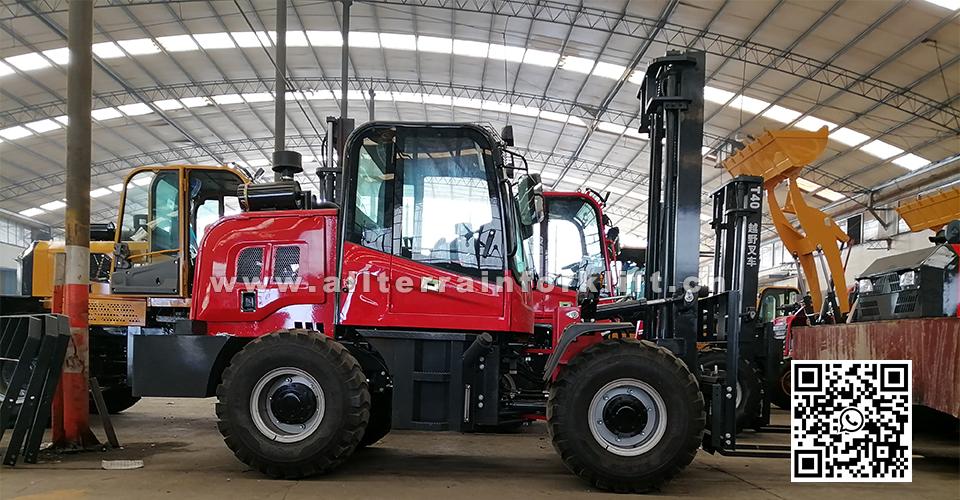Selecting the right type of off-road forklift is a critical decision that depends on various factors, with the choice between diesel and lithium-ion models being central to this decision-making process. This article provides a comprehensive guide to help businesses navigate the considerations involved in choosing between these two power sources for off-road forklifts.

1. Power Source Comparison:
-
Diesel Forklifts: Known for their robust power and endurance, diesel forklifts are traditionally favored for heavy-duty outdoor applications. They offer high torque, making them well-suited for challenging terrains.
-
Lithium-ion Forklifts: Lithium-ion forklifts are gaining popularity due to their clean and efficient power source. They provide a quieter and emission-free alternative, making them suitable for environmentally sensitive areas.
2. Operational Cost Analysis:
-
Diesel Forklifts: While diesel forklifts often have a lower upfront cost, it's essential to consider ongoing fuel expenses and maintenance costs. Fuel prices and maintenance requirements should be factored into the total cost of ownership.
-
Lithium-ion Forklifts: Lithium-ion forklifts generally have a higher initial investment but boast lower operating costs. They require less maintenance, have longer lifespans, and may qualify for incentives or rebates due to their eco-friendly nature.
3. Environmental Impact:
-
Diesel Forklifts: Diesel forklifts emit exhaust fumes, contributing to air pollution. They may not be suitable for indoor use or areas with strict emissions regulations.
-
Lithium-ion Forklifts: Lithium-ion forklifts produce zero emissions during operation. They are environmentally friendly, making them an ideal choice for indoor applications or locations with stringent environmental standards.
4. Noise Levels:
-
Diesel Forklifts: Diesel engines are inherently noisier compared to electric alternatives. This can be a consideration in noise-sensitive environments.
-
Lithium-ion Forklifts: Lithium-ion forklifts operate quietly, reducing noise pollution in the workplace. This makes them suitable for both indoor and outdoor applications.
5. Charging Infrastructure:
-
Diesel Forklifts: Diesel forklifts offer the advantage of immediate refueling, but the availability of diesel fuel needs to be considered, especially in remote locations.
-
Lithium-ion Forklifts: Lithium-ion forklifts require charging infrastructure. Ensuring convenient access to charging stations is essential for maintaining operational efficiency.
6. Application-Specific Considerations:
-
Diesel Forklifts: Ideal for heavy-duty outdoor applications, such as construction sites, lumber yards, and rough terrains that demand high torque and endurance.
-
Lithium-ion Forklifts: Suited for various applications, especially indoor environments where emissions, noise, and clean operation are critical. They are also suitable for outdoor applications with a focus on environmental sustainability.
Conclusion: Choosing between diesel and lithium-ion off-road forklifts involves evaluating various factors, including power requirements, operational costs, environmental impact, noise levels, charging infrastructure, and application-specific needs. By carefully weighing these considerations, businesses can make an informed decision that aligns with their operational goals, budget constraints, and environmental considerations.


